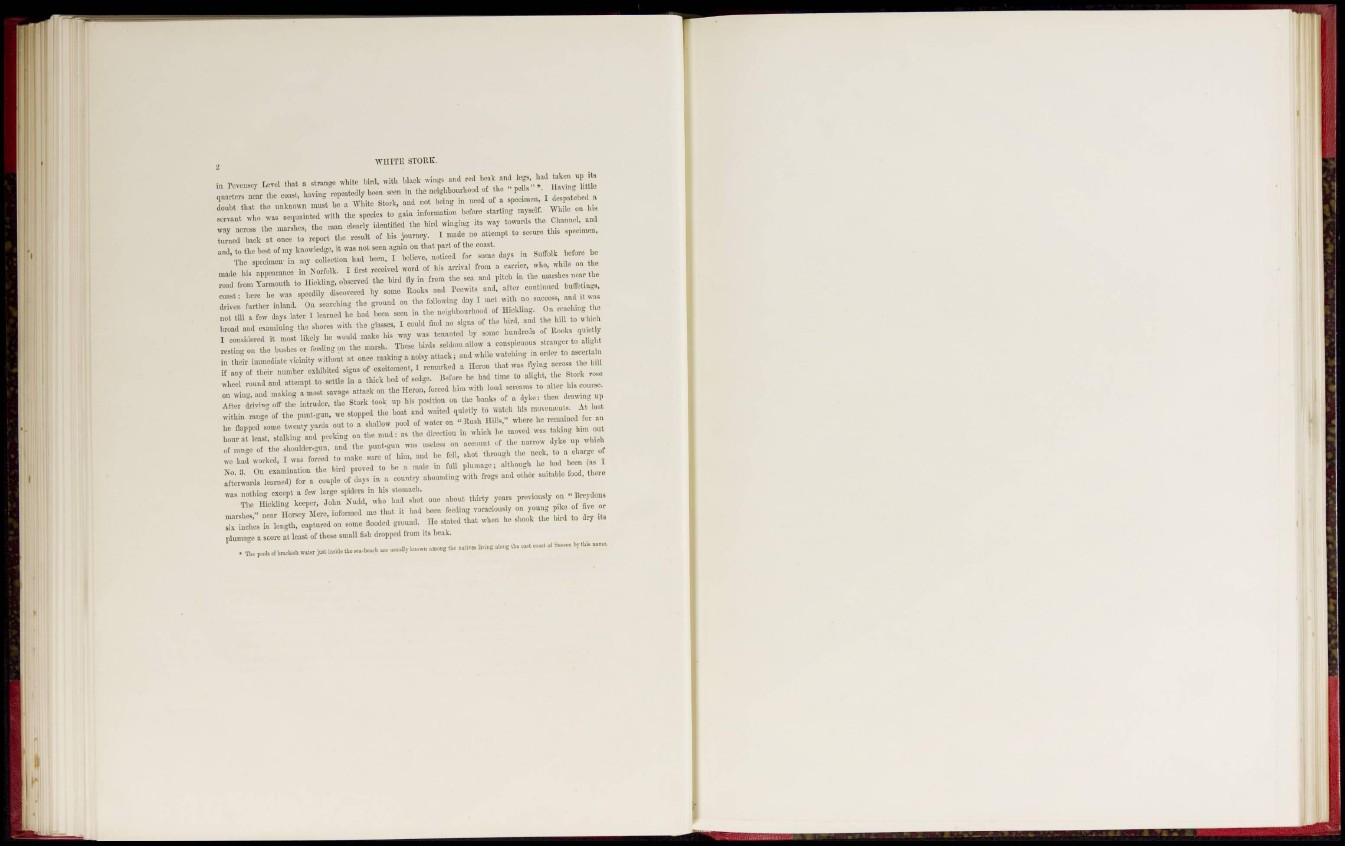
WHITE STORK.
in Pevensoy Level that a strange white bird, with black wings nnd red beak and legs, had taken np its
quarters near the coast, having repeatedly been seen iu the neighbourhood of the "polls1 ' * . Having little
doubt that the unknown must he a White Stork, and not being in need of a specimen, I despatched a
servant who was acquainted with the species to gain information before starting myself. While on his
way across the marshes, the man clearly identitied the bird winging its way towards tho Channel, and
turned kick at once to report the result of his journey. I made mi attempt to secure this specimen,
itnd, to the ltost of my knowledge, it was not seen again on that part of the coast.
The specimen in my cdhs'tion had been, I believe, noticed for some days in Suffolk before ho
made his appearance in Norfolk. 1 first received word of his arrival from a carrier, who, while on the
road from Yarmouth to Hickling, observed the bird fly in from the sea and pitch in the marshes near tho
coast: here he was speedily disisnered by some Rooks and Peewits and, after continued buffetings,
driven further inland. On searching the ground on the following day I met with no success, and it was
not til! a few days later I learned he had been seen in the neighbourhood of Hickling. On reaching the
broad tad examining the shores with the glasses, I coidd find no signs of the bird, and the hill to which
I considered it most likely he would make his way was tenanted by some hundreds of Rooks quietly
resting on the bushes or feeding on tho marsh. These birds seldom allow a conspicuous stranger to alight
in their immediate i icinity without at once making a noisy attack; and while watching in order to ascertain
if any of their number exhibited signs of excitement, I remarked a Heron that was Hying across the hill
wheel round and attempt to settle in a thick bed of sedge. Before he had time to alight, the Stork rose
on wiug. and making a most savage attack on the Heron, forced him with loud screams to alter his course.
After driving oir the intruder, the Stork took np his position on the banks of a dyke: then drawing up
within range of the pttut-guii, we stopped tho boat and waited quietly to watch bis movements. At last
he flapped some twenty yards out to a shallow pool of water on " Itush Hills," where he remained for an
hour at least, stalking and pecking on the mud: as the direction iu which he moved was taking him out
of range of the shoulder-gun, and the punt-gun was useless on account nf the narrow dyke up which
Wt had worked, I was forced to make sure of him, and he fell, shot through the neck, to a charge of
No. 3. On examination the bird proved to In- a male in full plumage; although he had been (ns 1
afterwards learned) for a couple of days in a country abounding with frogs anil other suitable food, there
was nothing except a few large spiders in his stomach.
The Hickling keeper, John Nudd, who had shot one about thirty years previously on " Itrrydons
marshes," near Horsey Mere, informed mo that it hail been feeding voraciously on young pike of live or
six inches in length, captured on some Hooded ground. He stated that when he shook the bird to dry its
plumage a scare at least of these small ti?h dropped from its beak.